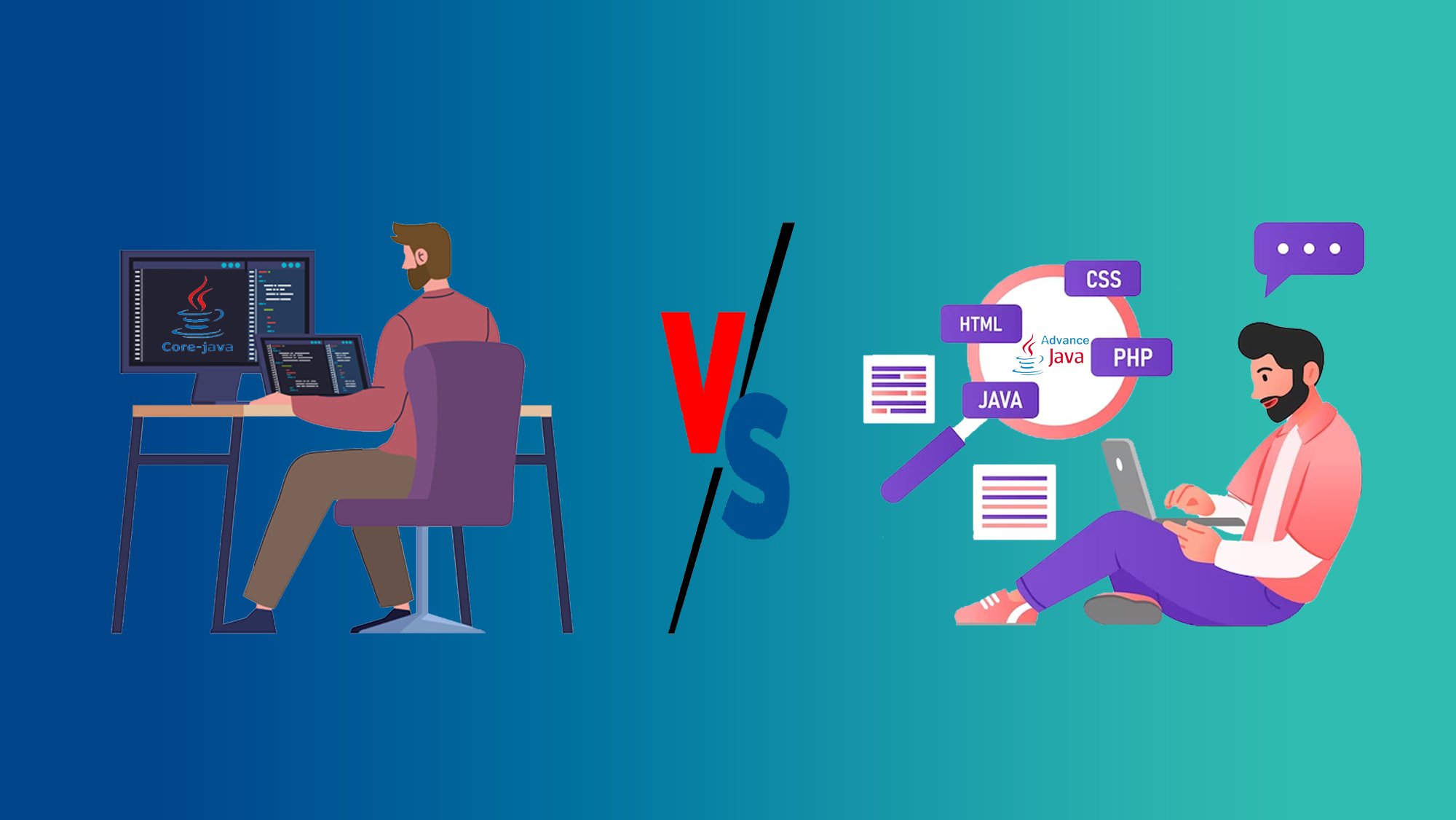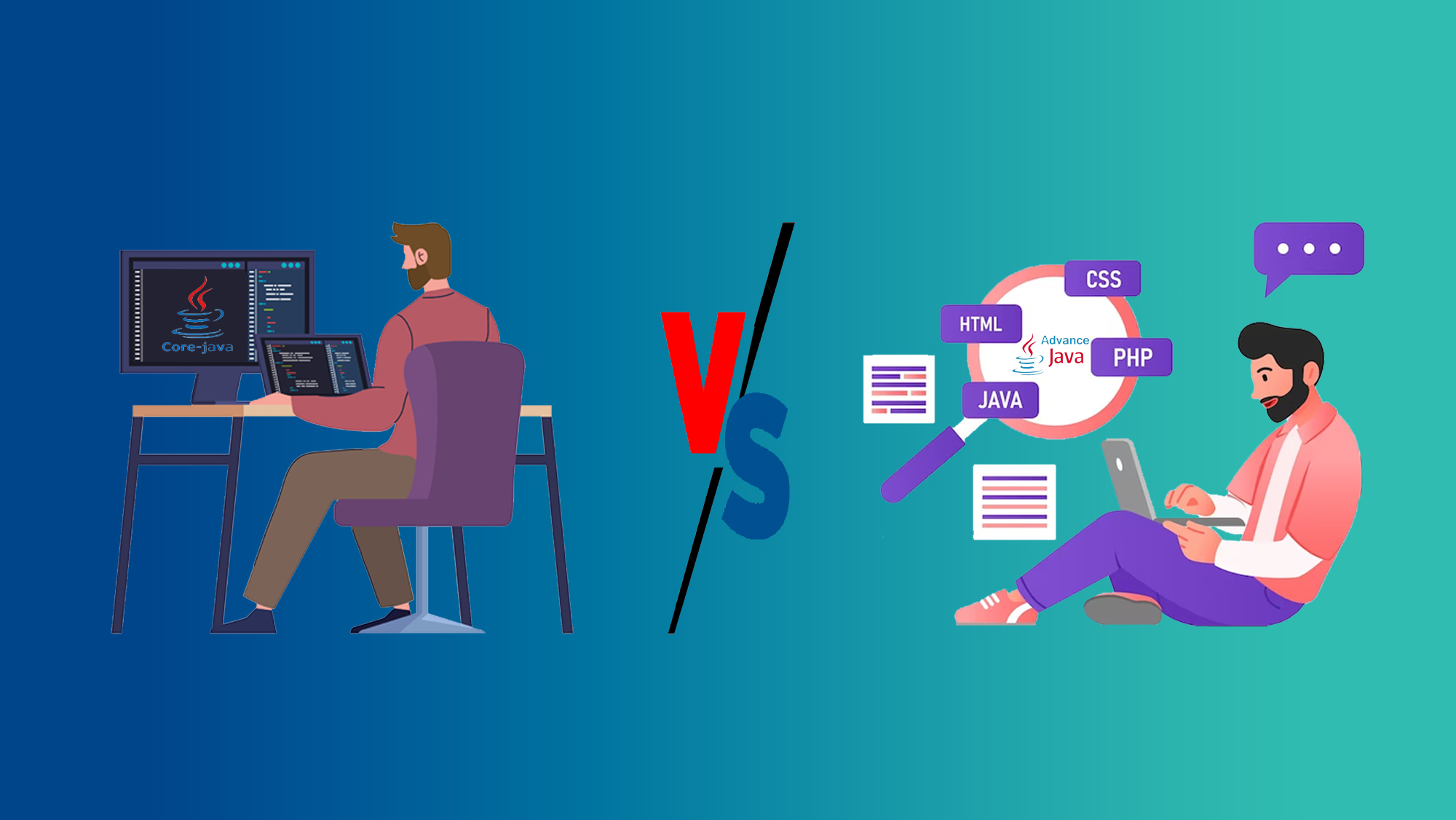Why is Core Java Training Important?
- Foundation for Java Development: Core Java training provides a strong foundation for aspiring Java developers. It covers essential concepts, syntax, and programming techniques that are fundamental to Java programming.
- Understanding Object-Oriented Programming: Core Java emphasizes object-oriented programming (OOP) principles, which are fundamental to Java. Training helps individuals grasp key OOP concepts like classes, objects, inheritance, polymorphism, and encapsulation.
- Building Robust Applications: Core Java training equips developers with the knowledge and skills to build robust and efficient applications. It covers topics such as exception handling, input/output operations, collections, and multithreading, which are essential for developing high-quality software.
- Platform Independence: Java is known for its platform independence, allowing applications to run on various platforms without modification. Core Java training teaches the basics of the Java Virtual Machine (JVM) and the Java platform, enabling developers to create cross-platform applications.
- Widely Used in the Industry: Java is widely used in the industry, making Core Java training highly valuable. It opens up opportunities for Java development roles across a range of industries, including software development, web development, enterprise applications, and Android app development.
- Preparing for Advanced Java Concepts: Core Java acts as a stepping stone for advanced Java concepts and frameworks. Mastering core concepts enables developers to delve into advanced topics like Java EE, Spring, Hibernate, and JavaFX with greater ease.
- Problem-Solving Skills: Core Java training enhances problem-solving skills as developers learn to apply programming techniques to solve real-world challenges. It encourages logical thinking, algorithmic design, and the ability to break down complex problems into manageable steps.
- Continuous Learning: Java is a constantly evolving language with new features and updates. Core Java training instills a learning mindset, empowering individuals to stay updated with Java's latest developments and explore advanced Java concepts throughout their career.
Who Needs Core Java Training?
Core Java training is valuable for aspiring Java developers, software engineers, and programmers seeking to establish a strong foundation in Java programming. It is also beneficial for professionals transitioning from other programming languages to Java, enabling them to grasp Java syntax, features, and object-oriented programming principles. Additionally, individuals working in the IT industry, such as web developers, Android app developers, and enterprise application developers, can benefit from Core Java training to enhance their Java programming skills and advance their careers.
What are the Benefits of Core Java Training?
- Strong Foundation: Core Java training provides a solid foundation in Java programming, covering essential concepts, syntax, and programming techniques. It helps individuals understand the fundamental principles of Java and build a solid base for further learning and specialization.
- Versatility: Java is a versatile programming language used in various domains such as web development, software development, enterprise applications, and Android app development. Core Java training equips individuals with the necessary skills to work across different industries and explore diverse career opportunities.
- Industry Demand: Java is widely used in the industry, making Core Java skills highly sought after by employers. By undergoing Core Java training, individuals increase their employability and open doors to a wide range of job opportunities.
- Advanced Java Concepts: Core Java serves as a stepping stone for advanced Java concepts and frameworks. By mastering core Java, individuals can easily transition to learning advanced topics such as Java EE, Spring, Hibernate, and JavaFX.
- Platform Independence: Java is known for its platform independence, allowing applications to run on different operating systems without modification. Core Java training teaches the fundamentals of the Java Virtual Machine (JVM) and the Java platform, enabling individuals to develop cross-platform applications.
- Problem-Solving Skills: Core Java training enhances problem-solving skills as individuals learn to apply programming techniques to solve real-world challenges. It fosters logical thinking, algorithmic design, and the ability to break down complex problems into manageable steps.
- Continuous Learning: Java is a dynamic language with regular updates and new features. Core Java training instills a learning mindset, preparing individuals to stay updated with the latest developments in Java and adapt to evolving industry trends.
- Collaboration and Networking: Core Java training often involves group activities and projects, providing opportunities for collaboration and networking with fellow learners and industry professionals. This allows individuals to expand their professional network and learn from others' experiences.
Core Java Career Opportunities
- Java Developer/Programmer: Core Java is the foundation for Java development, and individuals with strong Core Java skills can pursue roles as Java Developers or Programmers. They are responsible for designing, developing, and maintaining Java applications and systems.
- Software Engineer: Core Java skills are highly valued in the software engineering field. Software Engineers use Core Java to develop robust and scalable software solutions, working on projects across different industries.
- Web Developer: Core Java knowledge is beneficial for web developers, especially when working on server-side development. It enables individuals to create dynamic and interactive web applications using Java-based frameworks like JavaServer Pages (JSP) and Java Servlets.
- Android App Developer: Core Java is the primary programming language used for Android app development. With Core Java skills, individuals can create Android applications, leveraging the Android SDK and related frameworks.
- Enterprise Application Developer: Many large-scale enterprise applications are built using Java technologies. Core Java skills are essential for individuals interested in developing enterprise-level applications, working with frameworks like Java Enterprise Edition (Java EE) and Spring.
- Software Tester/QA Engineer: Core Java proficiency is valuable for software testers and Quality Assurance (QA) engineers. It allows them to develop test scripts, automate testing processes, and perform in-depth analysis using tools like JUnit and TestNG.
- Technical Consultant: Core Java expertise can lead to roles as a Technical Consultant, where individuals provide guidance and support to clients on Java-based solutions, architecture, and best practices.
- Systems Analyst: Systems Analysts utilize Core Java knowledge to analyze and assess business requirements, design system solutions, and provide technical recommendations for software development projects.
- Application Support Specialist: Core Java skills are beneficial for Application Support roles, where individuals troubleshoot and resolve issues in Java-based applications, ensuring their smooth functioning and performance.
- Technical Lead/Architect: With advanced Core Java knowledge, individuals can progress to leadership positions as Technical Leads or Architects. They guide development teams, provide technical direction, and design scalable and efficient Java-based systems.
Conclusion:
Core Java serves as the foundation for Java programming and offers numerous benefits and career opportunities. It provides a strong understanding of key concepts, syntax, and programming techniques. With Core Java skills, individuals can pursue diverse career paths such as Java development, web development, Android app development, and enterprise application development. Core Java training equips individuals with the necessary knowledge and skills to build robust and scalable applications, adapt to industry trends, and continuously learn and grow in the dynamic field of Java programming.







No Comments Yet
Let us know what you think